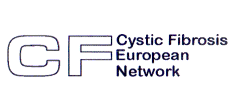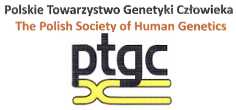Genetic testing
Cystic Fibrosis (CF)
Cystic Fibrosis (CF)
Cystic fibrosis (CF) is the most common congenital disease, inherited in an autosomal recessive mode. It occurs with a frequency of 1 out of 2,500 live births in the Caucasian population. CF is a monogenic disease caused by the defects of the CFTR (cystic fibrosis transmembrane conductance regulator) gene, which encodes the protein functioning as a chloride channel in epithelial cells. One in every 25 representatives of the White race is a carrier of a mutated variant of the CFTR gene, which makes 4% of the entire population. It is estimated that, in Poland, of the 370 thousand children born each year, about 150 suffer from CF and that 1.5 million Poles, men and women equally, are symptomless carriers of a CFTR gene mutation. The disease occurs when the CFTR gene mutations are inherited from both parents.
CF is a systemic disease, which, due to ion distortions on the surface of the epithelium cells resposible for secretion, involves potency impairment, chronic inflammation and the destruction of the discharging channels of exosecreting glands as well as of the organs that are directly connected with them: for instance, the sweat glands, alimentary canal (liver, pancreas, intestines), reproductive organs, and, most importantly, the respiratory system. Despite a significant therapeutic progress - the life span of the patients has been considerably prolonged and the quality of living ameliorated - CF remains an incurable disease.
The diagnostics of the diseae is complicated due to its heterogeneous development and to the complexity of its clinical symptoms. One of the essential stages of the diagnostic procedure is molecular testing, which aims at identifying the pathogenic CFTR gene mutations and in turn makes possible a definite confirmation of a clinical diagnosis. Determining the genotype of a person suffering from CF allows diagnosticians to verify the carrier status among his/her relatives as well as to propose prenatal diagnostics to parents considering another pregnancy. Defining the CFTR genotype of healthy persons planning to have children makes possible an estimation of the risk at which their offspring would be from CF. When both parents are carriers of the CFTR gene mutation, the risk is definitely higher than the average one concerning the entire population (0.004%; 1:2 500) and amounts to 25% (1:4).
The diagnostic procedure offered by the laboratory of NZOZ GENOMED consists in a DNA analysis aiming to identify CFTR gene mutations. The range of the offered tests is one of the widest in Poland and allows diagnosticians to select a diagnostic panel that is optimal for the needs of each individual patient: from identifying the gene’s single defects, to analysing the whole coding region, which makes possible the detection of 1600 mutations. Moreover, the MLPA technique is applied in order to detect large deletions and duplications in the CFTR gene.
Add. info: Orphanet: Search a disease
Cystic Fibrosis and Congenital Absence of the Vas Deferens - GeneReviews® - NCBI Bookshelf (nih.gov)










 saliva (spitting into a tube is required for sample collection, therefore the kit is not suitable for children under the age of 5)
saliva (spitting into a tube is required for sample collection, therefore the kit is not suitable for children under the age of 5)
 venous blood collected
venous blood collected